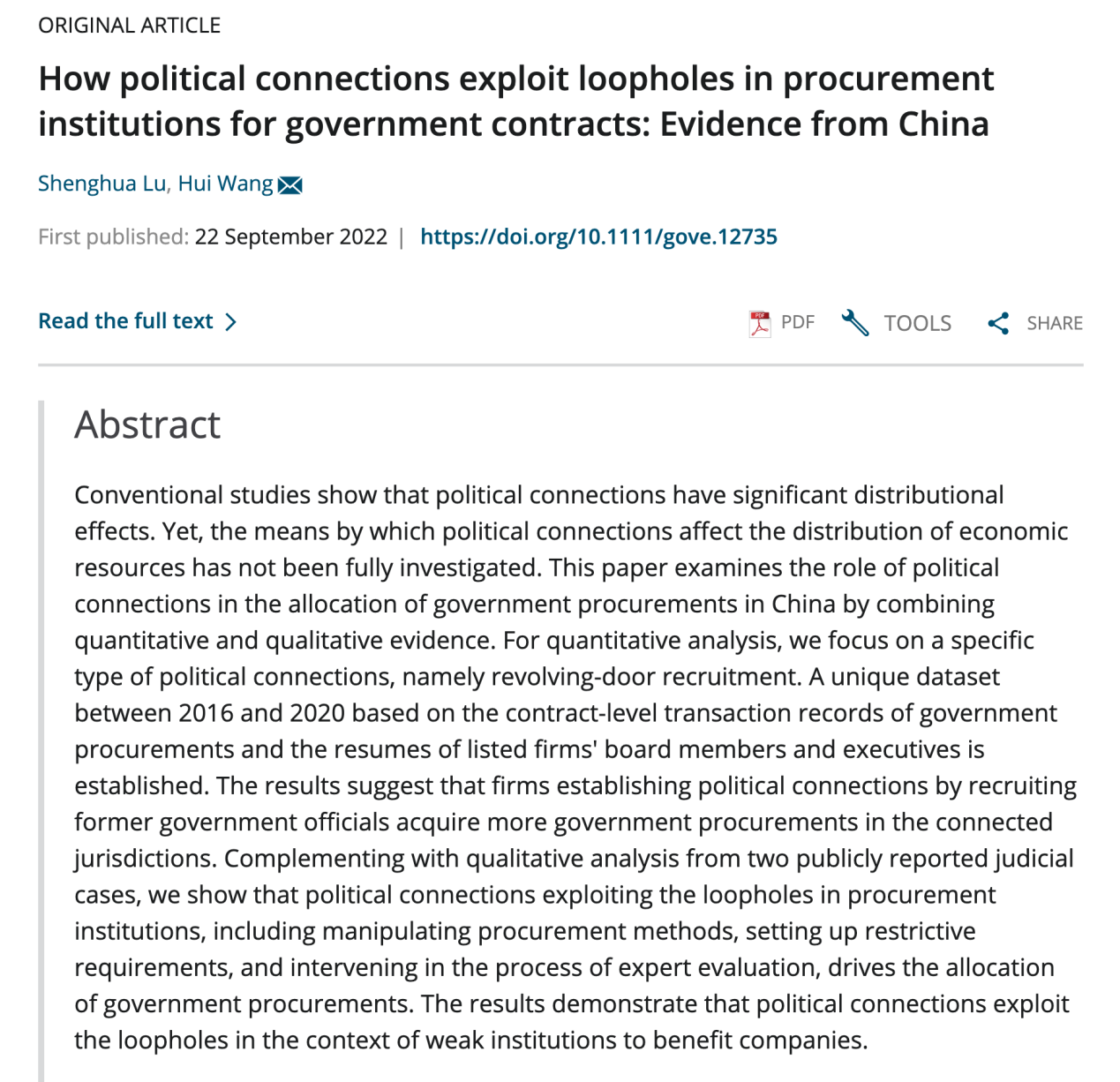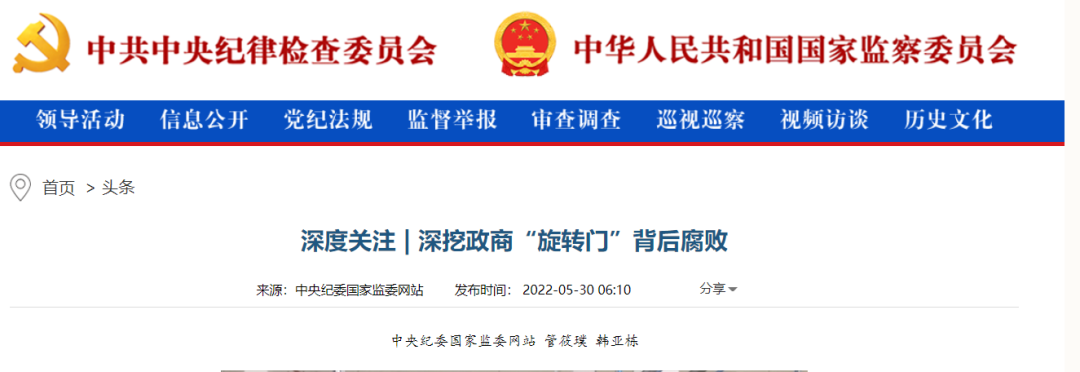近日,以浙江大学公共管理学院汪晖教授为通讯作者、博士生卢圣华为第一作者的论文“How political connections exploit loopholes in procurement institutions for government contracts: Evidence from China”在公共管理领域与政治学领域的权威期刊《治理杂志》(Governance)上发表。Governance是国际公共管理领域的顶级学术期刊,由Wiley出版社出版,属于社会科学引文索引(SSCI)来源期刊,2021年影响因子为3.331,致力于探讨行政政治、公共政策、行政管理和国家组织等方面的前沿学术问题。

现有文献已广泛关注到政治关联对资源配置的影响,但对政治关联发挥作用的机制的探讨则相对较少。本论文以政府采购为例探讨了政治关联对企业资源获取能力的影响及其机制。基于政府采购大数据(http://www.ccgp.gov.cn/)的定量分析表明,通过“旋转门”方式构建起政治关联的企业在其关联区域能够获得显著更多的政府订单。在机制讨论部分,本文进一步对采购方式进行了定量分析,并结合来自裁判文书的案例分析,归纳了政治关联影响政府采购的三条主要途径:(1)对常规采购方式的扭曲;(2)在采购文件中设置排他性规则;(3)对专家评审过程的干预。三条途径共同表明,尽管我国已经建立起了一套较为完善的政府采购制度,但政治关联依旧会通过“钻制度的漏洞”来影响政府采购的中立性和公平性。文章的研究结论为深化构建亲清政商关系、进一步优化营商环境的重要性提供了依据。

以下为论文的英文摘要:
Conventional studies show that political connections have significant distributional effects. Yet, the means by which political connections affect the distribution of economic resources has not been fully investigated. This paper examines the role of political connections in the allocation of government procurements in China by combining quantitative and qualitative evidence. For quantitative analysis, we focus on a specific type of political connections, namely revolving-door recruitment. A unique dataset between 2016 and 2020 based on the contract-level transaction records of government procurements and the resumes of listed firms' board members and executives is established. The results suggest that firms establishing political connections by recruiting former government officials acquire more government procurements in the connected jurisdictions. Complementing with qualitative analysis from two publicly reported judicial cases, we show that political connections exploiting the loopholes in procurement institutions, including manipulating procurement methods, setting up restrictive requirements, and intervening in the process of expert evaluation, drives the allocation of government procurements. The results demonstrate that political connections exploit the loopholes in the context of weak institutions to benefit companies.

